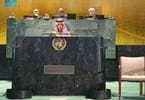The Caribbean region continues to suffer from the crippling impact of the global recession.
That information was contained in the Central Bank of Barbados Economic Review, June 2009. The challenges were faced with particular respect to the critical tourism sector.
It said: “Long stay arrivals declined in all countries except for Cuba, Jamaica and Cancun, Mexico, as arrivals to these territories rose by two per cent, 0.2 per cent and 4.7 per cent respectively. Long stay arrivals for Grenada, Antigua and Barbuda and St. Lucia fell by 4.6 per cent, 14.3 per cent and 13.7 per cent, respectively. Similarly, tourist arrivals for Anguilla, Belize and St. Vincent and the Grenadines declined by 21.4 per cent, 7.7 per cent and 12.9 per cent, respectively, for the first two months of 2009. The downturn in long stay arrivals throughout the Caribbean region was driven by a fall-off in visitors from major source markets, namely, Europe and the United States.”
It was also revealed that the performance of the productive sectors in the region was mixed: “Construction value added in Jamaica and the Bahamas remained moderate during the last quarter of 2008. However, in Trinidad and Tobago the sector continued to benefit from ongoing work on a number of private and governmental projects. With respect to agricultural output, value-added in the sector declined in Jamaica, the OECS and Trinidad and Tobago, while marginal growth was recorded in Guyana.”
Some of the larger economies suffered major contraction: “The level of inflation in Jamaica and Trinidad and Tobago eased during the first quarter of 2009. At February 2009, the rate of inflation in Jamaica was 0.8 per cent, compared to 1.8 per cent in the corresponding period of 2008 and zero percent in December 2008. Increases in all sub-categories fluctuated between 0.1 per cent and 1.1 per cent except for housing, water, electricity, gas and other fuels. Similarly, the rate of inflation in Trinidad and Tobago slowed from 14.5 per cent at the end of December 2008 to 11.7 per cent in January 2009. This outturn was mainly driven by a reduction in food prices. However, inflationary pressures strengthened in the Bahamas, as a rate of inflation moved to 4.28 per cent at March 2009, compared to 2.63 per cent, one year earlier.” (DB)






















